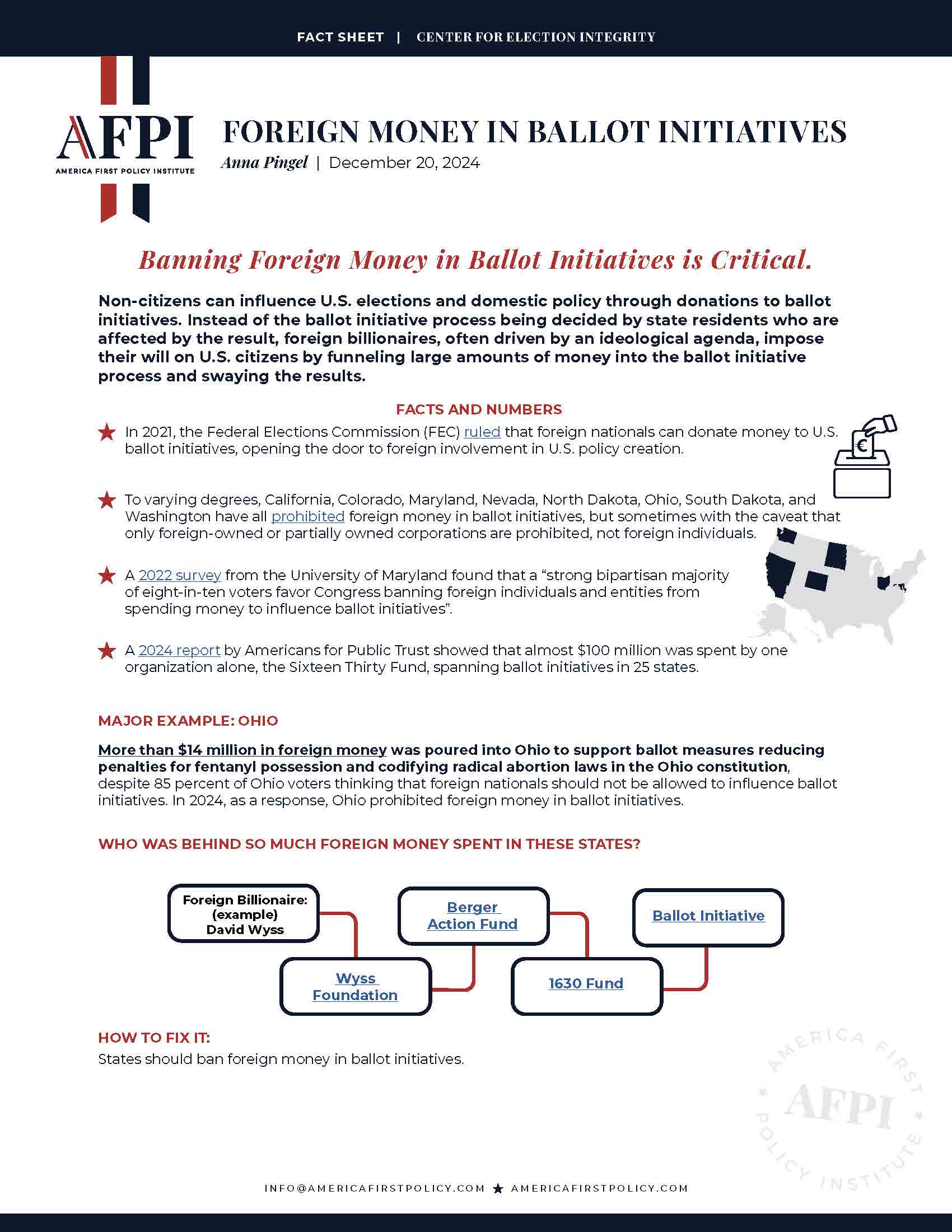Foreign Money in Ballot Initiatives
Banning Foreign Money in Ballot Initiatives is Critical.
Non-citizens can influence U.S. elections and domestic policy through donations to ballot initiatives. Instead of the ballot initiative process being decided by state residents who are affected by the result, foreign billionaires, often driven by an ideological agenda, impose their will on U.S. citizens by funneling large amounts of money into the ballot initiative process and swaying the results.
FACTS AND NUMBERS
- In 2021, the Federal Elections Commission (FEC) ruled that foreign nationals can donate money to U.S. ballot initiatives, opening the door to foreign involvement in U.S. policy creation.
- To varying degrees, California, Colorado, Maryland, Nevada, North Dakota, Ohio, South Dakota, and Washington have all prohibited foreign money in ballot initiatives, but sometimes with the caveat that only foreign-owned or partially owned corporations are prohibited, not foreign individuals.
- A 2022 survey from the University of Maryland found that a “strong bipartisan majority of eight-in-ten voters favor Congress banning foreign individuals and entities from spending money to influence ballot initiatives”.
- A 2024 report by Americans for Public Trust showed that almost $100 million was spent by one organization alone, the Sixteen Thirty Fund, spanning ballot initiatives in 25 states.
MAJOR EXAMPLE: OHIO
More than $14 million in foreign money was poured into Ohio to support ballot measures reducing penalties for fentanyl possession and codifying radical abortion laws in the Ohio constitution, despite 85 percent of Ohio voters thinking that foreign nationals should not be allowed to influence ballot initiatives. In 2024, as a response, Ohio prohibited foreign money in ballot initiatives.
WHO WAS BEHIND SO MUCH FOREIGN MONEY SPENT IN THESE STATES?

HOW TO FIX IT:
States should ban foreign money in ballot initiatives.
